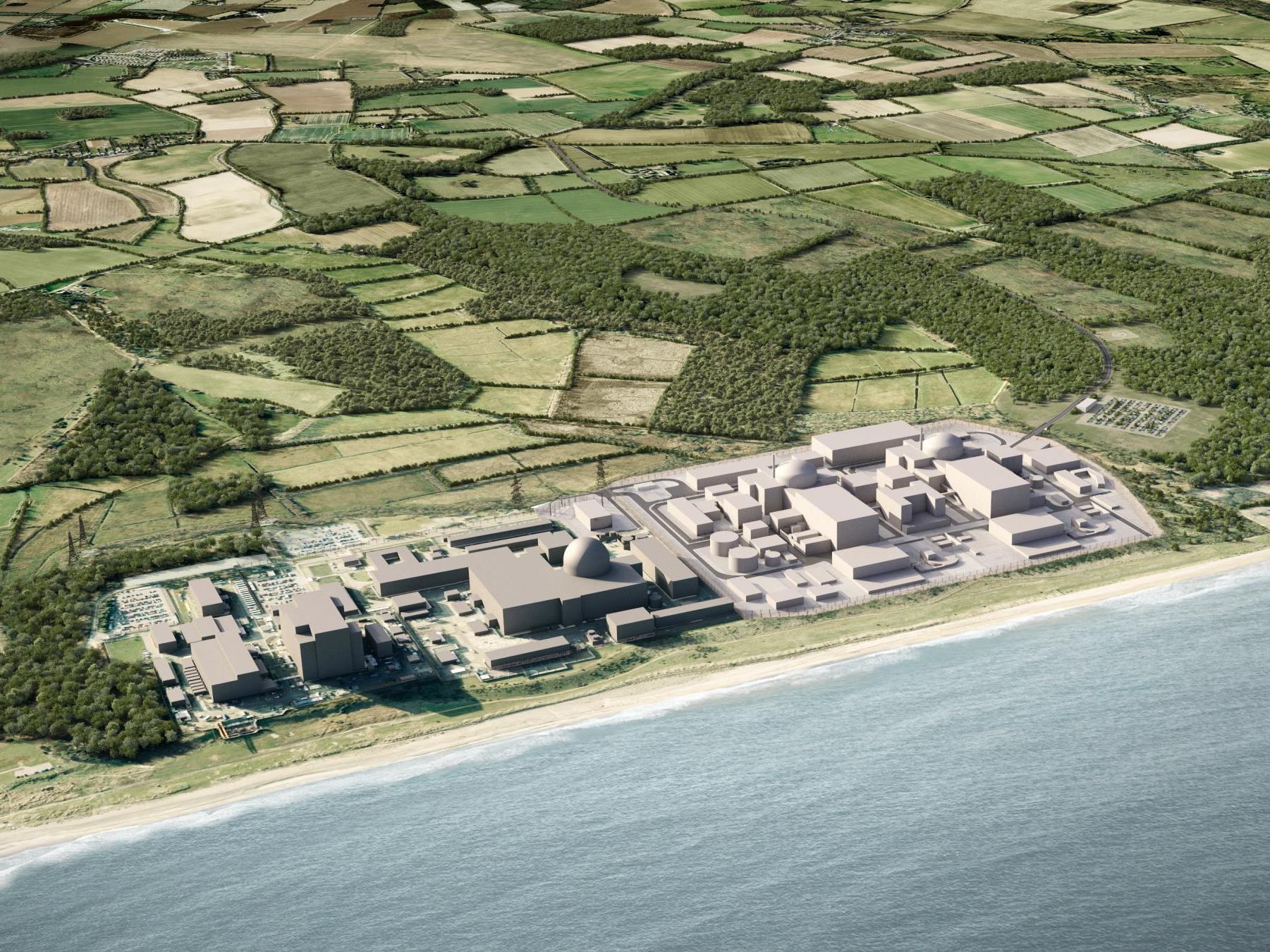A new nuclear power plant at Sizewell is the wrong choice for a zero carbon Britain
The climate column: The proposed Sizewell C will not produce electricity until about 2040, which it means it cannot reduce the UK’s carbon emissions with the speed necessary to avoid catastrophic tipping points

Just weeks ago, the Climate Assembly set up by parliament rejected nuclear power as an answer to creating a zero-carbon economy. This was due to cost, safety and difficulties with waste storage and decommissioning.
Yet Boris Johnson is reported to be about to commit Britain to buying another hugely expensive nuclear power station.
As this new plant would not be producing electricity until about 2040, it means it cannot reduce the UK’s carbon emissions with the speed necessary to avoid catastrophic tipping points, whereas cheaper renewables can be up and running within a couple of years of being commissioned.
Consider the following analogy. Four years ago, you needed to replace your gas boiler and a company came along and offered to sell you the world’s most expensive experimental boiler ever. It’s been trying to build the first four of them for over 20 years but had not yet got any actually working.
The first one it tried to build, in Finland, is already 13 years behind schedule and has more than tripled in price. The second one it tried to build, in France, is 10 years behind schedule, now costs six times the original quote and has encountered monumental safety issues.
They then tell you the boiler was filled with lethal toxins, which if the boiler’s seals broke, could explode and kill everybody in your house. All your neighbours would have to be permanently evacuated immediately without being allowed to collect their lethally contaminated belongings and the area around your boiler would become an exclusion zone for generations.
The sales-person added that the boiler will cost up to twice as much to run as your current boiler. They demanded you sign a 35-year inflation-proofed deal that makes it difficult to switch to a cheaper renewable energy supplier or use energy efficiency measures to reduce your need for the boiler.
Every single bank refused to lend you the money to install your new boiler, as they believed it was a financially insane project to lend money to.
There was another problem. The experimental boiler continuously produces highly-toxic explosive waste that the supplier, after 70 years of trying, still has no idea what to do with. You would have to store it in your cellar, until somebody miraculously comes up with a way to store it safely for millennia.
The salesperson neglected to add that you had to pay for the costs of removing the boiler at the end of its life but that the process takes hundreds of years to complete.
I tell you this imaginary tale to try and explain the utter insanity of what the UK government did when it signed the contract with EDF Energy to build a new Hinkley Point nuclear power plant in 2016. Hinkley is already a year behind schedule and nearly £3bn over budget.
And now imagine this. Despite all of the above and knowing that renewable energy alternatives have already fallen to less than half of the cost of this experimental boiler and that new renewable electricity storage technologies have been likewise collapsing in price, the same contractor comes back to you to persuade you to buy another of these hugely expensive boilers for your second home.
Unlike almost every single government in the world, Boris Johnson’s government is reported to be planning on announcing in the next few weeks that the UK will agree to build a second new EDF nuclear power plant at Sizewell in Suffolk. Why would any supposedly sane country sign such crazy energy contracts? Over the years, the nuclear industry has always employed many senior members from all of Britain’s political parties to ensure that their lobbyists have the best access to the UK government’s decision-making processes. They have employed numerous former energy ministers including John Hutton, Helen Liddell and Brian Wilson. They have also hired relatives of prime minsiters and energy secretaries and Tory, Labour and Lib Dem members of the House of Lords and former MPs.
Despite this, both the Lib Dems and Greens oppose Sizewell C. Lib Dem BEIS Spokesperson Sarah Olney told this column: "Under no circumstances should the government be subsidising new nuclear power plants. We are facing a climate emergency. Now is the time to be investing in renewable energy. We can generate 80 per cent of our energy by renewables by 2030.”
Doug Parr, chief scientist at Greenpeace, says that nuclear is not the fastest or most cost-effective route to zero carbon and says that the UK government has never made the case for why nuclear is needed, when there are a host of alternative, less risky and cheaper routes.
The Labour Party declined to provide a quote to this column prior to the announcement when requested, but it has long been pressured by the nuclear trade unions and senior Labour ex-politicians hired as nuclear lobbyists, to abandon its membership's opposition to nuclear power since Tony Blair's days.
However, you can easily, via the They Work for You website, demand that your MP tell Boris Johnson to stop betting the kitchen sink on an outdated technology and to instead invest the eye watering £20bn earmarked for Sizewell C, in Britain’s renewable energy & energy efficiency for our social housing, which would not only reduce carbon emissions but tackle fuel poverty.
Subscribe to Independent Premium to bookmark this article
Want to bookmark your favourite articles and stories to read or reference later? Start your Independent Premium subscription today.

Join our commenting forum
Join thought-provoking conversations, follow other Independent readers and see their replies